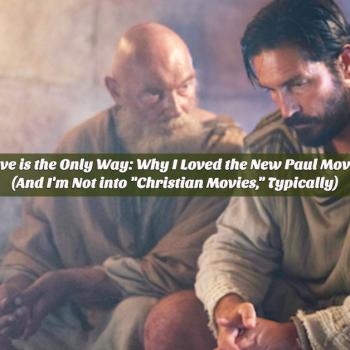Thesis: “The forms of media and technology—regardless of their content—cause profound changes in the church and culture” (23). “The medium is the message” (29).
Evaluation: Shane Hipps, who began his adult life in the advertising world (now a pastor), uses the work of Marshall McLuhan to analyze how technologies alter culture and faith. McLuhan is famous for the phrase: “The medium is the message.” Hipps uses this book as an opportunity to discern how the various “mediums” of electronic culture are changing the message of the church. To do so, he begins with a critique of Rick Warren who states: “Our message must never change, but the way we deliver that message must be constantly updated to reach each new generation” (29). In order to illustrate Warren’s fallacy he takes the reader on a tour through technological/medium history from: ancient oral culture, printing press culture, to the electronic age. In each of these mediums (following the lead of McLuhan) he contends that four subliminal changes are created in culture: 1) extension – what human capacity is amplified, 2) obsolesce – what is no longer needed, 3) reverse effect – what would happen if this is used to an extreme, and 4) retrieval – what does this finding rooting in from past technology (see 41). Using these four areas, Hipps persuasively argues that postmodernity is being shaped because of innovations such as TV, Internet, cell phones, and radio. He argues that all of these have led to a simultaneous dichotomy: tribalization and isolation. Hipps ethical concerns for the church are several, some of which include: image driven right brain experiences are taking us out of the left brain exercise of deep theological/biblical reflection, creation of insufficient community, video venues are creating celebrity and deconstructing the message of humility, and amplifying consumerist tendencies rather than subverting them for God’s mission. Nevertheless, Hipps points the reader to hope, in that our awareness and suspicion of how the electronic age shapes us can be a key in discovering the kind of message the church (God’s medium) will embody as we navigate through postmodernity.
Helpful Insights:
- Media is not good, evil, or neutral (23) … mediums shape belief (27)
- Every media is an extension of humanity as it amplifies part of us, ear eyes etc. (34)
- Phonetic Western alphabet led to linear, fragmented, sequential forms of logic (49)
- Our current culture is returning to images, which is activating Eastern thought (50)
- Printing press = Modernism: Extended-personal relationship, Obsolesces-community, Reverses Into-reductionism, Retrieves-Paul’s epistles (60) …Postmodern culture is a tribe of individuals (72)
- The church is God’s chosen medium for the sake of the world (91-93)
- Image overload leads to numbness toward injustice, which leads to inaction (109)
- Leaders must use left-brain capacity to learn/teach Scripture with goal of sharing its authority with the community rather than becoming part of hierarchy (133)
- “Mac” approach to church rethinks its theological operating system, “PC” approach attempts to add to its theology methods that appear innovative perpetuating consumerism (146ff)
- Emerging worship can perpetuate consumerism without intentionality for communal practices (158)
Response: This book comes to me at the right time. I am a leader in a church that is wrestling with questions of praxis in this postmodern climate. We are moving to a multisite model of ministry, and the question of using technology for video venues is one that has been quite involved. Hipps not only speaks directly to that situation, but gives ethical parameters for thinking about technology with life-giving scrutiny. Another area that fascinated me was the way in which popular culture and the worldview of the church interplay. For instance, the printing press is an invention that I have often thought led to individualism; but never before had I seen how it deeply shaped the theology of the reformers and now the “neo-reformed” church. Finally, this book is causing me to take another step back and to begin thinking about how various mediums may be shaping my approach to both faith and life. Am I living a disembodied pseudo-tribalistic existence? How can I begin to subvert this tendency in life and ministry for the mission of God?
Do you have any thoughts on the ideas mentioned in this “brief” or the work of Shane Hipps?













